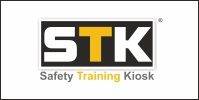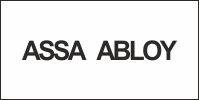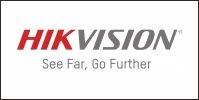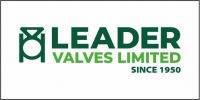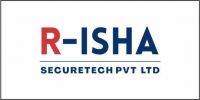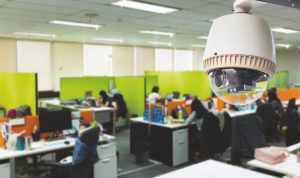 Video surveillance at your workplace is a very important factor when it comes to employers' security and the employees' privacy.
Video surveillance at your workplace is a very important factor when it comes to employers' security and the employees' privacy.
There are several methods of monitoring workers in a workplace setting. The company management can utilize web surfing surveillance, desktop surveillance, phone monitoring, and video surveillance. As companies are progressively considering the use of monitoring techniques, it is crucial to realize the potential effects that monitoring can have on the overall business. One of the most polemical monitoring techniques is the use of surveillance, to visually keep a record of employee performance, actions, and functions. Though it efficaciously enables the security personnel to carry out crime prevention techniques, there is still discord among employees, who are subjected to surveillance.
Setup
This concept has been under much discussion lately. It is a topic that is preferred by employers, but not favored by employees. Both the organizational leadership and the workers have different views on it. Many people have a doubt if keeping an eye on employees with the aid of video surveillance is effective. Monitoring employees with cameras and CCTVs have their own share of advantages and disadvantages.
Before setting up video surveillance, the company is required to elucidate the employee privacy rights, and what factors comprise an invasion of privacy. The workers also should be apprised that surveillance would be incorporated, and they should sign on a waiver stating that they are aware that they are being monitored.
The company management ought to be mindful about the risks, which are related with videotaping workers, so that the probability of judicial proceedings are decreased. Employers need to create a workplace environment, wherein the workers can voice out their opinions in confidence with the company management, without feeling that their conversations are being tracked. If the company is implementing video surveillance, it should cohere with written privacy policies that would keep the workers secure, and also lead to respecting their privacy.
Laws
A majority of states in the US have passed certain privacy-related laws, and most of these are incorporated for specifying a limit to the way employers may utilize employees' personal data, or maintain the secrecy of medical information or social security numbers. Few states have incorporated these laws, which relate to workplace privacy, including the use of cameras. For instance, in California, it is illegal to set up a surveillance mirror in a washroom, shower, or a locker room. On the contrary, in Connecticut, a company cannot install camera systems in places, which are meant for employee rest and comfort. For getting more information on these laws, the company needs to get in touch with the state labor department of their respective region.
Advantages
Setting up such a technology in the workplace can have many benefits, especially for employers who are extremely worried about business security.
Bettered Safety: If set up in an efficient manner, a video surveillance network can largely meliorate the workplace safety and security of the company, as well as of the workers. However, for the purpose of being effective, the surveillance network and systems are required to be expeditiously maintained and checked periodically so that security menaces can be appropriately determined.
Coercing Good Behavior: Just as inclusion of such systems prevent larceny, it also plays a very significant role in making employees behave in a good manner. There is less probability of workers acting in a manner not according to corporate standards, if they are aware of covert cameras monitoring them. This eventually creates a good corporate environment to work in.
Theft Impediment: It is proven that proper usage of surveillance has enabled organizations to save thousands of dollars in stolen goods. Individuals are less likely to burgle if they are aware of the fact that they are being closely monitored by company security personnel. In specific highly-sensitive businesses, video surveillance is certainly significant to their overall success.
Renders Proof of Any Crime: Using video recordings, it is much simpler to see what really took place using video recordings. The acquired evidence can then be used to take appropriate action against the perpetrator. Although this technique is not completely foolproof, in a majority of cases, it can surely prove to be efficient.
Disadvantages
There are also few disadvantages of setting up video surveillance systems, particularly for workers, who are bothered about workplace privacy.
Employee Privacy: It is not necessary that the employer should monitor the employees' each and every step and activity. There is also a limit to the surveillance factor, and the employer is required to take steps, keeping such conditions in mind. Moreover, if the surveillance systems and cameras are set up at inappropriate places, or the recordings are hived away for improper use, the employer can be liable for invasion of privacy claims. It is very important to keep in mind the potential legality involved in such claims, and devise and incorporate the systems accordingly, for the purpose of averting pricey legal formalities and actions.
Decrease in Morale: Video surveillance can really have a bad effect on the morale of employees. It can create a feeling in the minds of workers that the company does not trust them, and has a doubt on their activities. This might even lead to unhealthy relations between the employees and the company management, and a decrease in the employee productivity.
Counterfeit Sense of Security: The employer should ensure that the video systems are working in a proper manner, and there is no sense of false security among employees. This concept would only be efficient, if it is actively monitored, handled, and looked after in a proper manner. A dysfunctional system can create a counterfeit sense of security in the minds of employees, and also, will not benefit the employer in precluding crimes and thefts.
Determining whether to implement video surveillance in the workplace is a very confusing task. For the employer to decide on this aspect, it is crucial to evaluate the particular requirements and essentials of the company, and also the possible aftereffects to the business. Once you have sorted out these aspects, the organization would be in a better state to take a well-informed decision on video surveillance, and if it will affect the business.
















